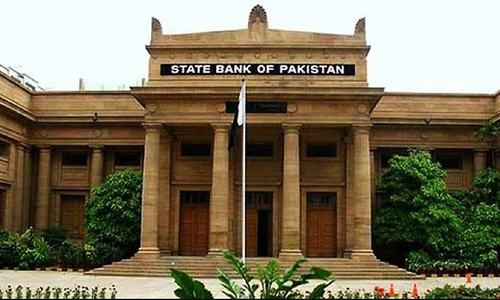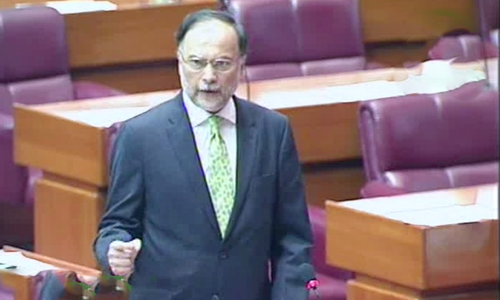THE last few weeks have seen a proliferation in the public debate on central bank independence (CBI), triggered by the government’s submission to parliament of proposed amendments to the State Bank of Pakistan (SBP) Act. While some have sought to contribute an evidence-based discussion, the broader debate has been marred by unsubstantiated assertions.
Consequently, some basic questions necessary for an informed discourse remain unanswered: what is the distilled economic wisdom regarding CBI? How does Pakistan compare with other emerging economies on CBI? Are the specific amendments proposed to the SBP Act appropriate or not? This article seeks to address these questions.
On the first question, contrary to what some have asserted, the jury is no longer out. After the high inflation episodes and debt crises of the 1970s and 1980s, a broad consensus emerged among macroeconomists on the need for central banks to focus on maintaining price stability, which was seen as the best way for them to promote long-term economic stability and employment; insulate them from political interference and the attendant pressures of electoral spending; and make them more transparent about their thinking on monetary policy, to help anchor inflation expectations.
The ensuing decades saw legislative and institutional reforms that clearly enhanced CBI in both advanced and emerging economies (see Garriga, 2019). The reforms ushered in a period economists call ‘The Great Moderation’. From 1990-2007, the global economy saw a dramatic decline in inflation and business cycle volatility, despite a multiplication in cross-border capital and trade flows. No robust evidence of a long-term loss in economic activity could be isolated. A preponderance of studies has confirmed these effects (see Dincer and Eichengreen, 2014, and Dall’Orto Mas et al, 2020).
Some basic questions necessary for an informed discourse remain unanswered.
Where the economic debate is still ongoing is the extent to which de facto CBI will survive in the future. Central banks in advanced economies have come under increasing government pressure to keep interest rates low (eg Trump’s pressure on US Fed chairman Powell last year), while authoritarian leaders more generally (eg Erdogan, Modi), seek to limit the “unelected” power of central banks. However, very few economists are enthused by the prospect of a broad reversal in CBI.
On the second question, ie where Pakistan stands among emerging market economies on CBI, the answer is: pretty low. On overall CBI, Pakistan ranks fifth lowest among 47 countries. That India ranks below Pakistan is hardly comforting. Markets were roiled in 2018 with the de facto firing of India’s central bank governor after he refused to hand over some of the country’s international reserves to the Modi government, while warning, “governments that do not respect central bank independence will sooner or later incur the wrath of the financial markets” see Davies, 2020).

It is also useful to look at the evidence on key sub-components of CBI. Here we find SBP ranks eighth lowest on the autonomy of appointment, dismissal, and tenure of the governor. Indeed, the average tenure of SBP governors has been around two years, unacceptably short and indicative of strong political interference.

Next, SBP ranks the lowest on autonomy to pronounce and pursue its own objectives. An obvious example of this is SBP’s inability to adjust the exchange rate during 2015-17 despite a surging current account deficit. This reinforces the need to set clear objectives for the central bank, and empower it to pursue those objectives.

Finally, SBP ranks second lowest on lack of formal limits on central bank financing to the government. In Pakistan, such financing has contributed to a delay in fiscal reforms (eg raising the tax-to-GDP ratio) and kept Pakistan’s inflation rate relatively high among emerging economies (inflation, remember, is a tax on the poor). Rather than have zero central bank financing limits set in the context of IMF programmes, the government should think of its own formal rules to contain such financing within prudent limits, which need not be set strictly at zero.

The foregoing positions us better to answer the third question, ie on the appropriateness of the proposed amendments to the SBP Act.
The amendments broadly seek to address the gaps identified here. However, there are two main areas of concern.
First, will the proposal to make price stability a primary objective result in depressed growth (which is mentioned as a tertiary objective)? If the response of independent central banks to the 2008 global financial crisis and the Covid pandemic crises is any guide, this concern is overblown. Central banks have arguably done too much, not too little, to support weak economies in the wake of these crises. This said, there may be scope to reframe SBP’s objective as: maintain price stability and financial stability, while pursuing maximum employment over the long-term, a kind of blend of the US Fed and Bank of England objectives.
Second, why should SBP staff be protected from accountability by NAB? The motivation for this is the recognition that central banks have to take difficult decisions under uncertainty and should feel empowered to take them without the fear of being taken to court. The key here is the ‘good faith test’, which is mentioned in the amendments, but which needs to be fleshed out. On the question of equitable treatment across public institutions, it might be better to extend the proposed protections to other institutions than drop them for the SBP.
Also, the elements of accountability that, arguably, deserve greater attention in the Act, are: (i) how to assess if SBP has met its price stability objective and what sanctions would apply if it has not met it; and (ii) the right of the parliamentary finance committee to ask questions of the SBP, akin to the rights of the US Congress.
Countries grow on the back of strong and independent institutions; and it was the gradual erosion of our institutions that has broken our back. This provides an additional important reason to not dismiss lightly calls for strengthening the independence of SBP, one of our most important economic institutions.
The writer teaches economics at SOAS and is a research fellow at Bloomsbury Pakistan.
Twitter: @NadirCheema
Published in Dawn, April 26th, 2021













































